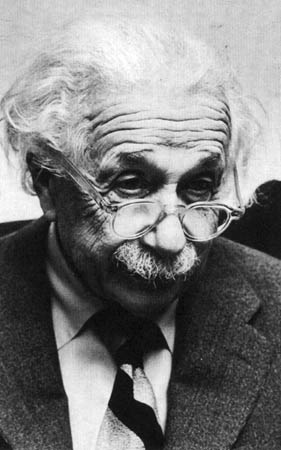The Later Years

“The unleashed power of the atom has changed everything save our modes of thinking and we thus drift toward unparalleled catastrophe.”
With his theory of general relativity observed as fact through an eclipse in Britain in 1919, Einstein became the leading story of the newspapers. Despite his popularity, his lectures in 1920 in Berlin were interrupted by anti-Jewish demonstrations. In 1921, Einstein made his first visit to the United States, during which he received the Barnard Medal. He also received the Nobel Prize in 1921, though not for relativity, but for his works on the photoelectric effect.
In 1933, Einstein moved to the United States permanently. For the rest of his life, Einstein sough a “unified field theory” where “gravitation and electromagnetism could be derived from one set of equations” (http://www.humboldt1.com/~gralsto/einstein/later.html). Einstein was notably against war, but corresponded with F.D. Roosevelt to urge him to develop the atomic bomb before the Germans did. He made contributions to the war effort by hand writing his 1905 paper on special relativity and auctioning it off –an act that raised six million dollars. A week before he died, Einstein wrote a letter to Bertrand Russell which gave the instruction that Einstein desired his name to be put on a manifesto urging all nations to give up nuclear weapons. Einstein died on 18 April 1955, and he was cremated, his ashes scattered over an unknown area.